- News
- Reviews
- Bikes
- Accessories
- Accessories - misc
- Computer mounts
- Bags
- Bar ends
- Bike bags & cases
- Bottle cages
- Bottles
- Cameras
- Car racks
- Child seats
- Computers
- Glasses
- GPS units
- Helmets
- Lights - front
- Lights - rear
- Lights - sets
- Locks
- Mirrors
- Mudguards
- Racks
- Pumps & CO2 inflators
- Puncture kits
- Reflectives
- Smart watches
- Stands and racks
- Trailers
- Clothing
- Components
- Bar tape & grips
- Bottom brackets
- Brake & gear cables
- Brake & STI levers
- Brake pads & spares
- Brakes
- Cassettes & freewheels
- Chains
- Chainsets & chainrings
- Derailleurs - front
- Derailleurs - rear
- Forks
- Gear levers & shifters
- Groupsets
- Handlebars & extensions
- Headsets
- Hubs
- Inner tubes
- Pedals
- Quick releases & skewers
- Saddles
- Seatposts
- Stems
- Wheels
- Tyres
- Health, fitness and nutrition
- Tools and workshop
- Miscellaneous
- Buyers Guides
- Features
- Forum
- Recommends
- Podcast
TECH NEWS
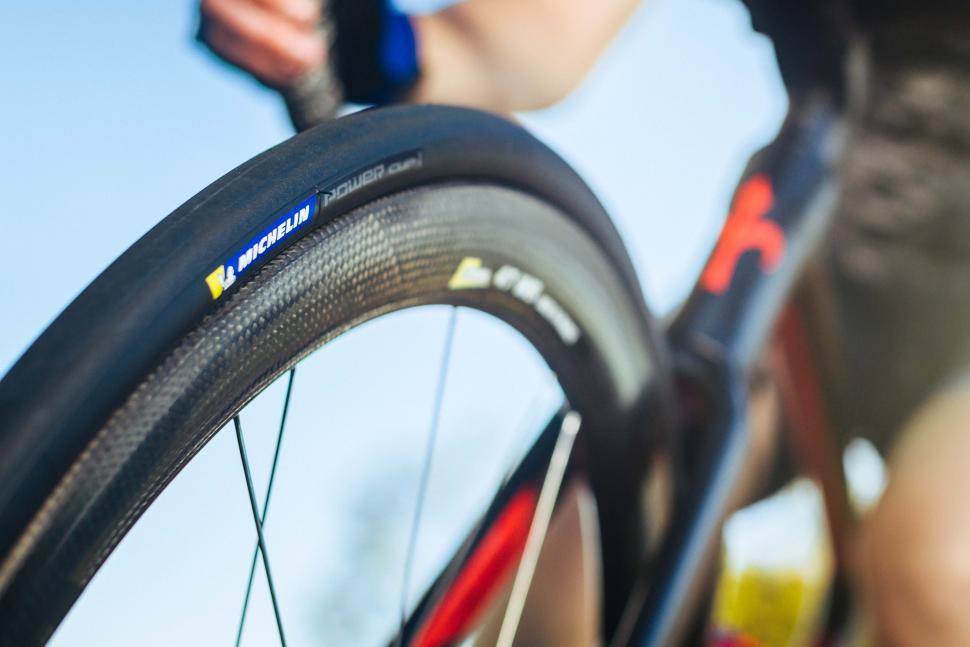 michelin-power-cup-13 crop
michelin-power-cup-13 cropMichelin launches ‘fastest ever road tyre’, the Power Cup
Michelin has added three new tyres to its road racing range, with the new Power Cup offering lower rolling resistance than the current benchmark tyre in the road sector, according to independent testing organised by Michelin. The French tyre giants also said it offers "excellent" puncture resistance for its low weight and good wet weather grip especially when cornering - but it isn't class-leading in either of these areas.
> The 10 best road bike tyres 2022 - rubber for speed, durability and puncture resistance
The Michelin performance road line consists of three new models: the Michelin Power Cup tube type, Power Cup Tubeless Ready and Power Cup Tubular.
The tyres have been developed in conjunction with Team Cofidis, who have been racing these tyres since the start of the 2022 season and have already picked up four wins.
All three tyres use Michelin’s Gum-X compound that’s said to be inspired by the brand’s Moto GP technology. The tube type and tubeless versions have a 3x120 TPI casing (threads per inch), whereas the tubular version has a 2x160 TPI casing.
Each model is available in both Black and Classic sidewall versions, with a range of widths from 23mm to 30mm.
Michelin says that independent testing was carried out by tyre and engineering experts Wheel Energy, with the 25mm versions of Michelin Power Cup tyres tested against 25mm versions of key competitors “under strict standardised conditions”, comparing:
- Rolling resistance
- Brake friction: wet grip, wet grip cornering at 20 degrees
- Tread puncture resistance
- Sidewall puncture resistance
Michelin’s Power Cup tyres were tested against Continental GP 5000s, Schwalbe Pro Ones and Vittoria Graphene 2.0 Corsas.
“These comprehensive tests showed the Michelin Power Cup to be the fastest tyre with the lowest rolling resistance of the tyres on test, whilst also delivering excellent levels of grip,” says Michelin. (Click all the following charts for larger versions.)
As you can see in the bar chart above the Michelin tyres require the fewest watts to travel at 30km/h.
In the test which aimed to determine braking performance in wet conditions, the Power Cups’ performance was in line with the competition. The higher the coefficient of friction, the more traction you’ll get from the tyre.
Wheel Energy also conducted a test which set out to determine grip when cornering in the wet. Here, the Power Cups were just behind the Vittoria's Graphene 2.0 Corsas, and performed significantly better than the Continental GP 5000s and Schwalbe Pro Ones.
“Despite being the lightest of all the brands on test, the Michelin Power Cup tyres also demonstrated outstanding puncture resistance,” the brand points out.
Sidewall puncture protection was also tested, with the Power Cups impressing across all puncture resistance tests, albeit not producing a class-leading performance.
The tube type Power Cup weighs in at a claimed weight of 200g for the 25mm width and the tubeless ready version weighs 255g (25mm width).
Michelin's Power Cup tube type and Power Cup tubeless ready tyres both cost £62.99, while the Power Cup tubular costs £99.99.
Anna has been hooked on bikes ever since her youthful beginnings at Hillingdon Cycle Circuit. As an avid road and track racer, she reached the heady heights of a ProCyclingStats profile before leaving for university. Having now completed an MA in Multimedia Journalism, she’s hoping to add some (more successful) results. Although her greatest wish is for the broader acceptance of wearing funky cycling socks over the top of leg warmers.
Latest Comments
- Stephankernow 4 min 21 sec ago
Cost! Lack of thought?
- Runtilyoudrop 1 hour 21 min ago
Does this mean they will answer my emails and give my money back?
- OldRidgeback 1 hour 29 min ago
Yes, it's something I notice a lot when I'm cycling in traffic or riding my motorbike in traffic. I pass a lot of vehicle with drivers obviously...
- BBB 4 hours 40 min ago
Inhumane system that now will be getting even worse.
- Bungle_52 8 hours 4 min ago
In case anyone missed it in yesterdays blog here are the two pevious articles. The second one contains the testimony from the driver....
- David9694 8 hours 13 min ago
The old role was appointed at the Mayor's pleasure; is in addition to the permanent staff of the Combined Authority. I'm not sure if Adam was an...
- Destroyer666 11 hours 38 min ago
Pretty clearly stated several times in the text that the issue was not related just to his son. And besides, everybody watching the races could see...
- Rendel Harris 11 hours 54 min ago
All Fizik and Selle Italia saddles (though not all their other products) are made in Italy I believe, and their 3D printed models definitely are.
- chrisonabike 12 hours 20 min ago
If you're not on the road with a car, I bet its driver is much less likely to swerve into your space *. Because you're not "in the way"! (Any...
- mdavidford 12 hours 36 min ago
The problem with this argument, though, is that it's just not true....


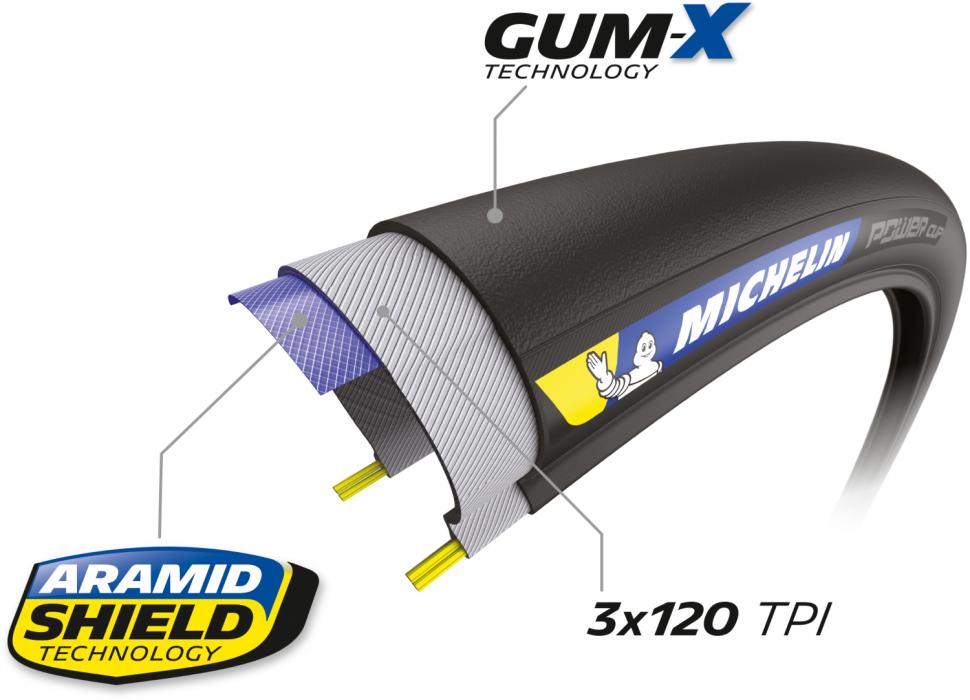
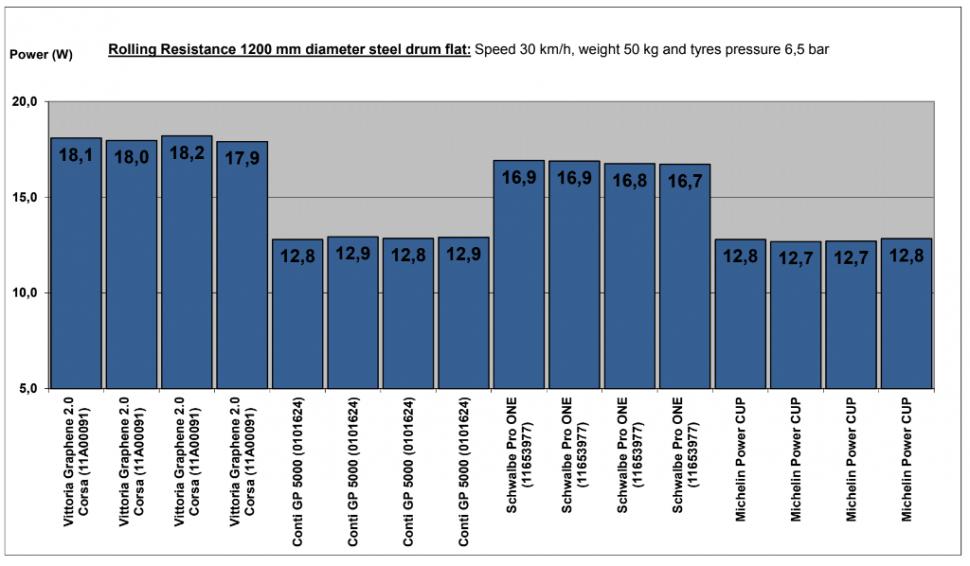

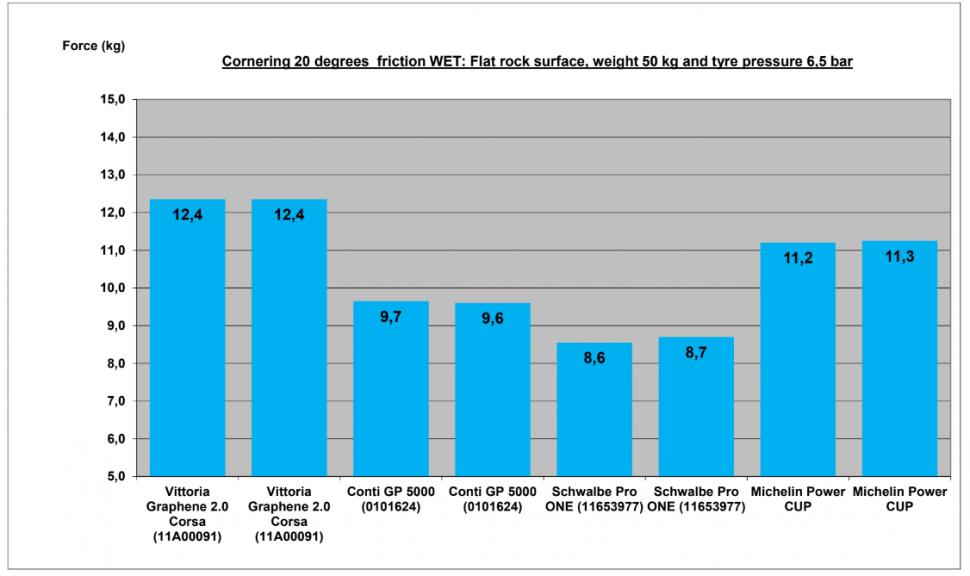
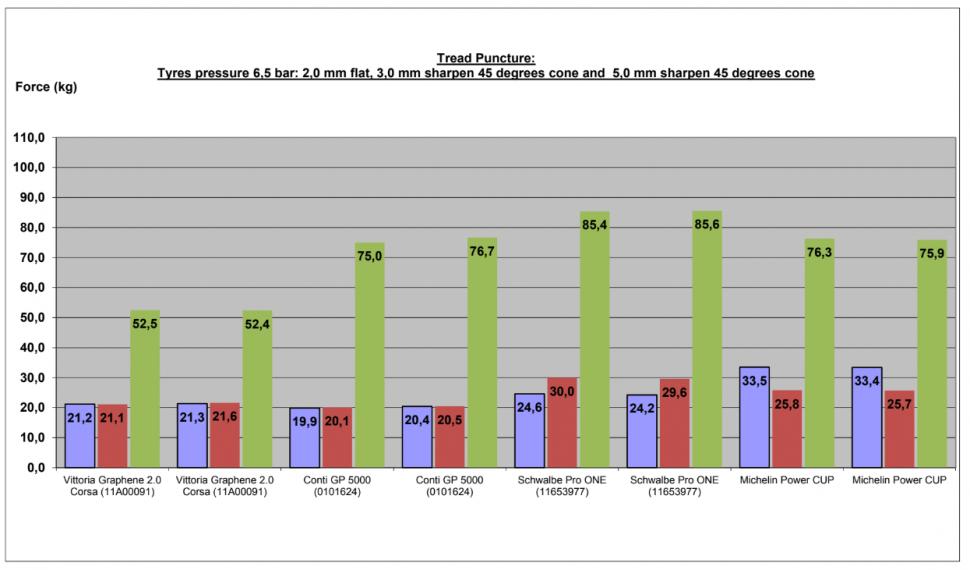

Add new comment
10 comments
Does this mean that the Power Road tyres will be replaced with the Power Cup? Their website seem to suggest so. Looking at reviews on online shops, I'm speculating that the Power Road has quality issues.
Will definitely try them when they come out.
Interesting that they chose to test against the old GP5000 tyres....
Would consider Michelin, once they drop the crappy blue and yellow logo. Don't want that on my tyres.
IME Michelin make incredible real world tyres. I've ridden Pro3, 4 and Krylions for many miles off road and they don't skip a beat. The sidewalls in particular are very robust. Try that with contis.
Tested against my 'go to' tyres...though resistance to cuts seems to drive my purchases these day rather than speed. Vittorias ride beautifully, but cut easily. Conti's seem to have the best balance between cuts, comfort and speed.
Probably a good time to launch a tyre.. if they have stock.. cause no bugger else seems to be able to supply high end tyres.
I shall be looking for these.
Nice to see a test showing a benefit at a very achievable 30 kmh rather than some aero test results that show that you can save 5w at 45kmh 🙄
Achievable yes but the people for whom saving 5w really matters usually want to ride at 40 km/h (25 mph) or faster.
but that is not most of the people they are marketing these tyres at.
"The tyres used by the Cofidis team for riding the Classics and Grand Tours"
Are you saying that they are aiming these tyres are relatively steady leisure riders?
More likely they want to sell them to those who would normally buy a GP5000 or similar lightweight tyre - who prioritise saving weight and watts over long tyre life and puncture resistance (which seems to be a sizeable number of people).